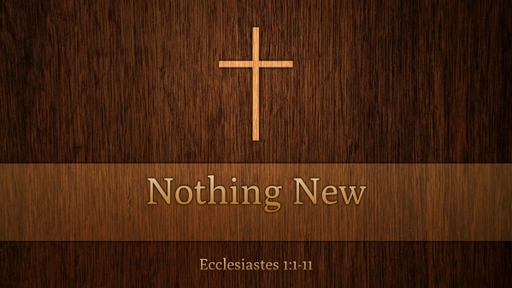Nothing New

1. Background
A. Author
B. Date
C. Circumstance
D. Audience
E. Theme
We have already noted that Solomon used the word “vanity” thirty-eight times in this book. It is the Hebrew word hevel, meaning “emptiness, futility, vapor.” The name “Abel” probably comes from this word (Gen. 4:2). Whatever disappears quickly, leaves nothing behind and does not satisfy is hevel, vanity. One of my language professors at seminary defined hevel as “whatever is left after you break a soap bubble.”
“This man had been living through all these experiences under the sun, concerned with nothing above the sun … until there came a moment in which he had seen the whole of life. And there was something over the sun. It is only as a man takes account of that which is over the sun as well as that which is under the sun that things under the sun are seen in their true light”
advises us to trust God and enjoy what we do have rather than complain about what we don’t have. Life is short and life is difficult, so make the most of it while you can.
The Preacher sought to be a philosopher, but in the end, he had to conclude, “Fear God, and keep His commandments” (12:13).
2. Exposition
A. Life
Is Meaningless
It may be that the modern, Christian reader can do no better than to import hebel into his or her vocabulary, much as has been done with αγαπε and to a lesser extent koinonia.
Everything is transitory and therefore of no lasting value. People are caught in the trap of the absurd and pursue empty pleasures. They build their lives on lies.
